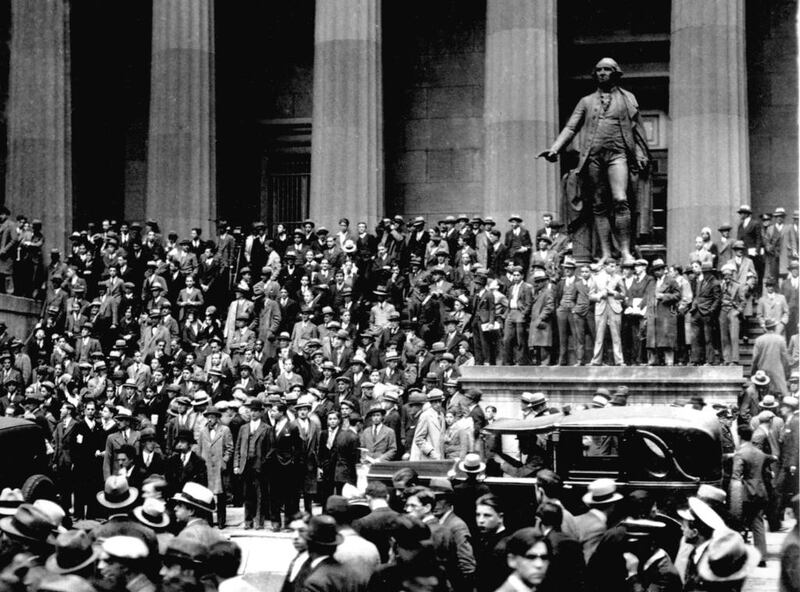Last month, at the end of the World Economic Forum (WEF), the week-long annual meeting of the world’s rich and powerful in Davos, one participant summarised the general feeling as: “Two years ago we were too pessimistic. Last year we were too optimistic. This year we got it right”.
We will have to wait until the end of this year to see if they did get it right. For now, the question remains why those who got it wrong for two years in a row would get it right this time. Is it because of the hopeful belief of “third time lucky”?
Failing to correctly predict the future is neither a new nor an uncommon phenomenon. However, it seems to be endemic in the land of economics. Those who talked about an upcoming financial crisis during the euphoria before 2008 were ridiculed. An episode of even greater proportions, the Great Depression that started after the Wall Street crash of 1929, was similarly missed – in fact, was denied even after it started. The Japanese economy has been expected to bounce back any time now – for the past couple of decades. The euro crisis was prematurely declared over in 2011.
Soothsayers who check whether they got it right are rare – but not unheard of.
A group of “future development” bloggers sponsored by the World Bank made six socioeconomic predictions at the beginning of last year. The group’s self-assessment at the end of the year was disheartening.
A prediction that Europe would have a better year proved wrong. An expected improvement of both governance and incomes in large parts of Africa proved mostly wrong. That more economists would examine the importance of politics in development and that political scientists would take economics more into account was found to be partially right – as were, first, the expectation that global growth would remain robust and US economic policies would be less consequential to emerging markets, and, second, that girls in developing countries would outperform boys.
The one thing that the bloggers predicted correctly was that mobile banking and other leapfrog technologies would spread widely. Technology, after all, does not go backwards.
All in all, the total score comes to three out of six (with half-points for partially right predictions). This 50-50 outcome is the same as a child randomly picking six balls from a bag that has an equal number of black and white balls.
It would be much better if the world had more economic certainty. Imagine what it would have been like had we known in advance that the international price of oil would drop from more than US$100 a barrel last June to about $50 a barrel now.
Uncertainty has been a fact of life and will not change. There is no way to predict a conflict in Ukraine in Europe, the outbreak of Ebola in Africa or the rise of ISIL in the Middle East.
And yet while there are many things that do not have predictable outcomes, there are a few that do.
The WEF meeting closed with discussions on climate change and inequality.
On the one hand, we know and no longer have to predict the consequences of abusing the planet.
On the other, shakier hand, consider inequality.
Roberto Egydio Setubal, the Brazilian banker who co-chaired the WEF meeting, said that to reduce inequality, “the best answer is growth”. He further ventured that “we will see better results in the next five years than we saw in the past five”.
But hold on a second. Since the early 1980s and the onset of globalisation, the world has enjoyed high rates of economic growth, an unprecedented increase in wealth and reduction in absolute poverty (measured as those living on less than $1 to $2 a day).
Has inequality decreased?
No, according to many including Oxfam, which made headlines at Davos when it released its estimate that the 85 richest people on the planet have the same wealth as the poorest 50 per cent (3.5 billion people). That figure represents a dramatic fall from nearly 400 people in 2010. In cash terms, the wealth of the richest 80 people doubled from 2009 to last year.
What drives the increase in inequality is not a lack of economic growth. Technological change and globalisation have played a role – but neither should be compromised and hold back economic growth. What is needed are policies that would address institutional weaknesses and exclusion arising from lack of access to social services (because of inability to pay) and of equal opportunities.
The benefits of such policies do not depend on whether one is a pessimist or optimist. And they save economists from having to make predictions that are merely speculation about how to make a quick profit.
Economics can offer a lot, and is a subject worth studying even if, as a student put it to her professor: “Why should I bother with economics when much of what economists say is rubbish?” The professor answered: “So that economists won’t fool you”.
Professor Zafiris Tzannatos is an economist living in Beirut. He has been an adviser to international organisations and regional governments, and the chairman of economics at the American University of Beirut.
Follow The National's Business section on Twitter





